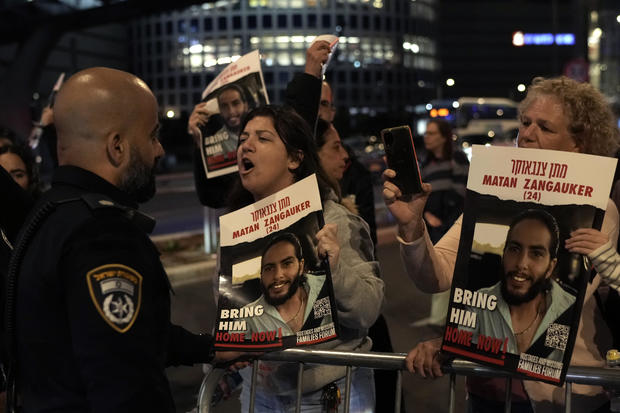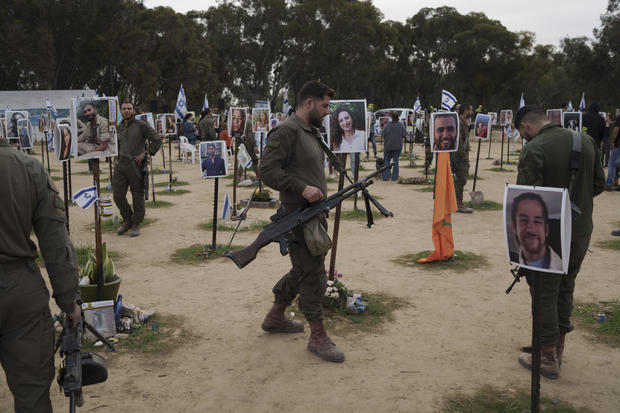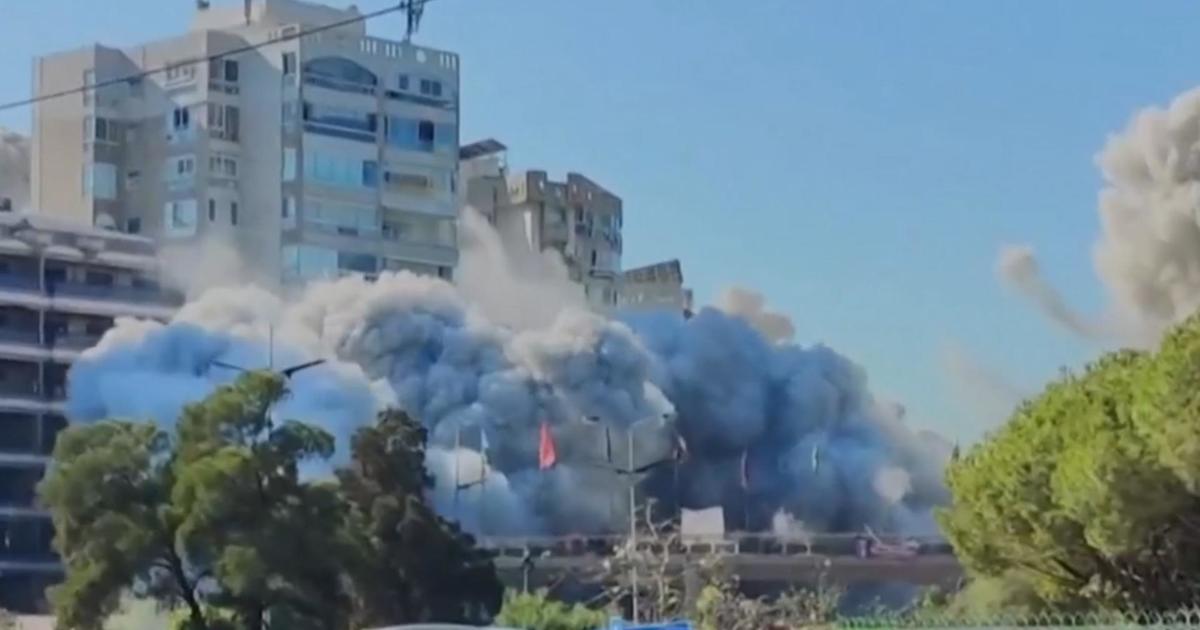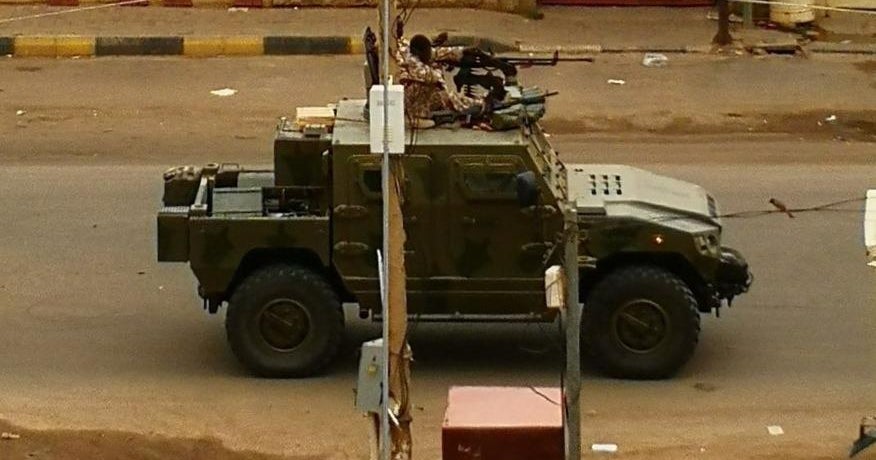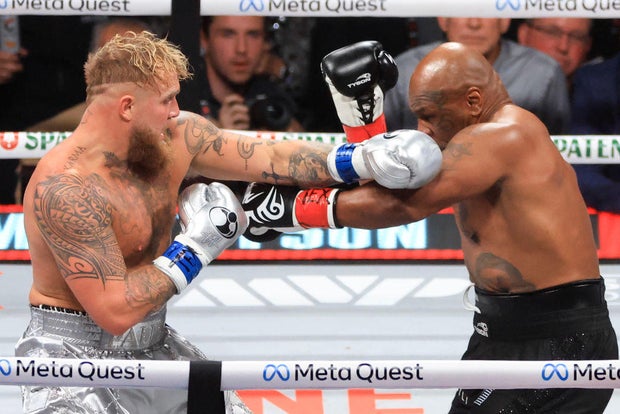CBS News
Gaza’s death toll surpasses 25,000, Health Ministry says, as ongoing Hamas war divides Israelis
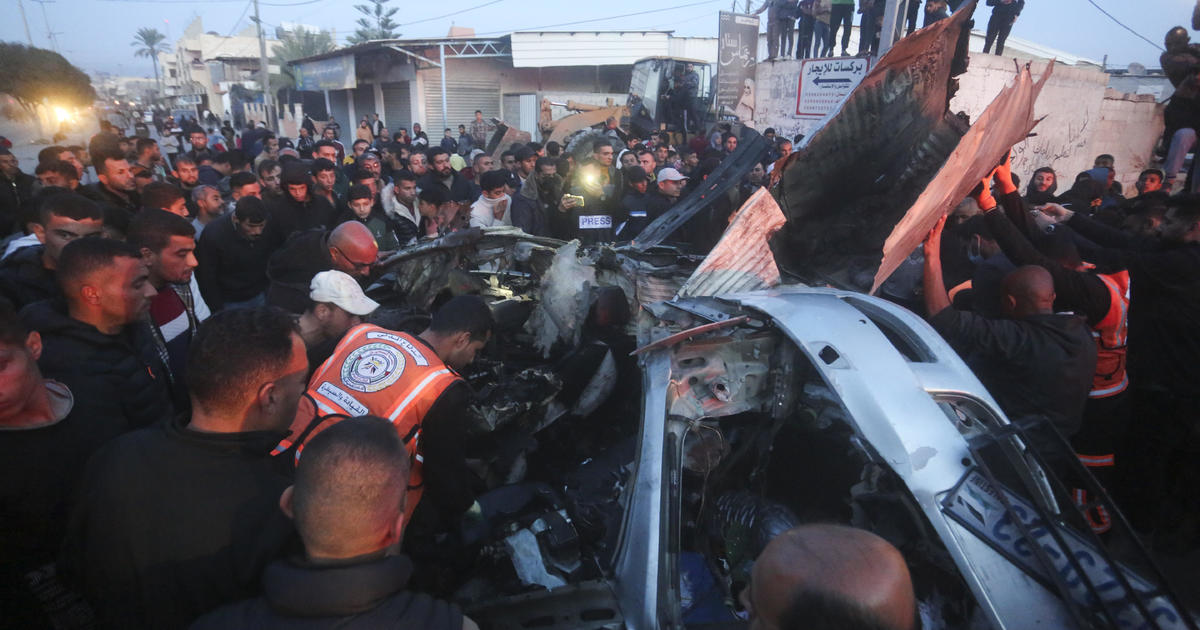
The Palestinian death toll from the war between Israel and Hamas has soared past 25,000, said the Hamas-run Health Ministry in the Gaza Strip on Sunday, while the Israeli government appeared far from achieving its goals of crushing the militant group and freeing more than 100 hostages.
The level of death, destruction and displacement from the war is without precedent in the decades-old Israeli-Palestinian conflict. Israeli officials say the fighting is likely to continue for several more months.
The conflict and the plight of hostages held in Gaza have divided Israelis and their leaders while the offensive threatens to ignite a wider war involving Iran-backed groups in Lebanon, Syria, Iraq and Yemen that support the Palestinians.
On Sunday, the Israeli Air Force carried out two series of strikes on “terrorist infrastructure,” including a military building, a launch post and an observation post belonging to the Iran-backed militant group Hezbollah, the Israeli military said. Israel said it also struck several locations in southern Lebanon, including a Hezbollah command center and military compound.
Earlier, on Saturday, at least five Iranians were killed in an Israeli strike on Damascus, Syria’s capital city, which targeted a building used by the Iranian paramilitary Revolutionary Guard, according to Syrian and Iranian officials. And, on Thursday, Yemen-based Houthi rebels launched missiles at a merchant vessel owned by the United States, the Pentagon said, marking the latest attack from the militant group, which is similarly backed by Iran, on commercial ships in and around the Red Sea. It was the rebel group’s third strike last week targeting U.S.-owned vessels.
Violence has also spiked in the occupied West Bank. On Friday, a Palestinian-American teenager was shot and killed by Israeli troops in the West Bank, a Palestinian official told Reuters.
In Lebanon, Hezbollah forces have engaged in near-daily clashes with Israeli troops along the border.
An Israeli airstrike on Sunday hit a car near a Lebanese army checkpoint in the southern town of Kafra, killing at least one person and injuring several others, Lebanese state media reported. The identities of those killed and injured were not immediately clear. Israel’s military said it doesn’t comment on reports in foreign media.
The United States, which has provided essential diplomatic and military support for Israel’s offensive, has had limited success in persuading Israel to minimize the risk to civilians and to facilitate the delivery of more humanitarian aid.
Israeli Prime Minister Benjamin Netanyahu has rejected U.S. and international calls for postwar plans that would include a path to Palestinian statehood. U.N. Secretary-General Antonio Guterres called the refusal to accept a two-state solution “totally unacceptable.”
“The Middle East is a tinderbox. We must do all we can to prevent conflict igniting across the region,” Guterres added Sunday. “And that starts with an immediate humanitarian cease-fire to relieve the suffering in Gaza.”
The war began with Hamas’ surprise attack in southern Israel on Oct. 7. Terrorists killed some 1,200 people, mostly civilians, and took around 250 hostages back to Gaza.
Leo Correa / AP
Israel responded with a bombing campaign and ground invasion that laid waste to entire neighborhoods in northern Gaza and spread south from there. Ground operations are now focused on the southern city of Khan Younis and built-up refugee camps in central Gaza dating back to the 1948 war surrounding Israel’s creation.
Israel continues to carry out airstrikes throughout the besieged territory, including areas in the south where it told civilians to seek refuge. Many Palestinians have ignored evacuation orders, saying nowhere feels safe.
Since the war started, 25,105 Palestinians have been killed in Gaza, while another 62,681 have been wounded, the Health Ministry said. The toll included the 178 bodies brought to Gaza’s hospitals since Saturday, Health Ministry spokesperson Ashraf al-Qidra said. Another 300 people were wounded in the past day, he said.
The overall toll is thought to be higher because many casualties remain buried under the rubble from Israeli strikes or in areas where medics cannot reach them, Al-Qidra said.
The Hamas-run Health Ministry does not differentiate between civilians and combatants in its figures but says around two-thirds of the people killed in Gaza were women and minors. The ministry is part of the Hamas-run government, but its casualty figures from previous wars were largely consistent with those of U.N. agencies and even the Israeli military.
The Israeli military says it has killed around 9,000 militants, without providing evidence, and blames the high civilian death toll on Hamas because it positions fighters, tunnels and other militant infrastructure in dense neighborhoods, often near homes, schools or mosques.
Hatem Ali / AP
The military says 195 soldiers have been killed since the start of the Gaza offensive.
The war has displaced some 85% of Gaza’s residents from their homes, with hundreds of thousands packing into U.N.-run shelters and tent camps in the southern part of the tiny coastal enclave. U.N. officials say a quarter of the population of 2.3 million is starving as a trickle of humanitarian aid reaches them because of the fighting and Israeli restrictions.
“Bread does not suffice for one hour,” said Ahmad Al-Nashawi, who accepted donated food at a camp of plastic tents in the southern city of Rafah. “You can see how many children we have other than women and men. What matters most for a child is to eat.”
Netanyahu has vowed to keep up the offensive until Israel achieves “complete victory” over Hamas and returns all remaining hostages. But even some top Israeli officials have begun to acknowledge that those goals might be mutually exclusive.
Hamas is believed to be holding the captives in tunnels and using them as shields for its top leaders. Israel has managed to rescue just one hostage, and Hamas says several have been killed in Israeli airstrikes or during failed rescue operations.
A member of Israel’s War Cabinet, former army chief Gadi Eisenkot, said last week that the only way to free the hostages was through a cease-fire. In an implicit criticism of Netanyahu, he said claims to the contrary amounted to “illusions.”
Hamas has said it will not free more hostages until Israel ends its offensive. The group is expected to make any further releases conditional on securing freedom for thousands of Palestinians imprisoned in Israel, including high-profile militants involved in attacks that killed Israelis.
Leo Correa / AP
Israel’s government has ruled that out for now, but it faces growing pressure from families of the hostages, who are pushing for an exchange like the one that took place during a weeklong November cease-fire.
Some Israelis also are frustrated by the security failures that preceded the Oct. 7 attack and by Netanyahu’s handling of the war. Thousands of people gathered in Tel Aviv over the weekend to call for new elections.
But Netanyahu’s far-right coalition partners are pushing him to step up the offensive, with some calling for the “voluntary” emigration of hundreds of thousands of Palestinians from Gaza and the re-establishment of Jewish settlements there. Israel withdrew soldiers and settlers from the territory in 2005, two years before Hamas seized power from rival Palestinian forces.
CBS News
Bela Karolyi, polarizing U.S. gymnastics coach, dies at 82
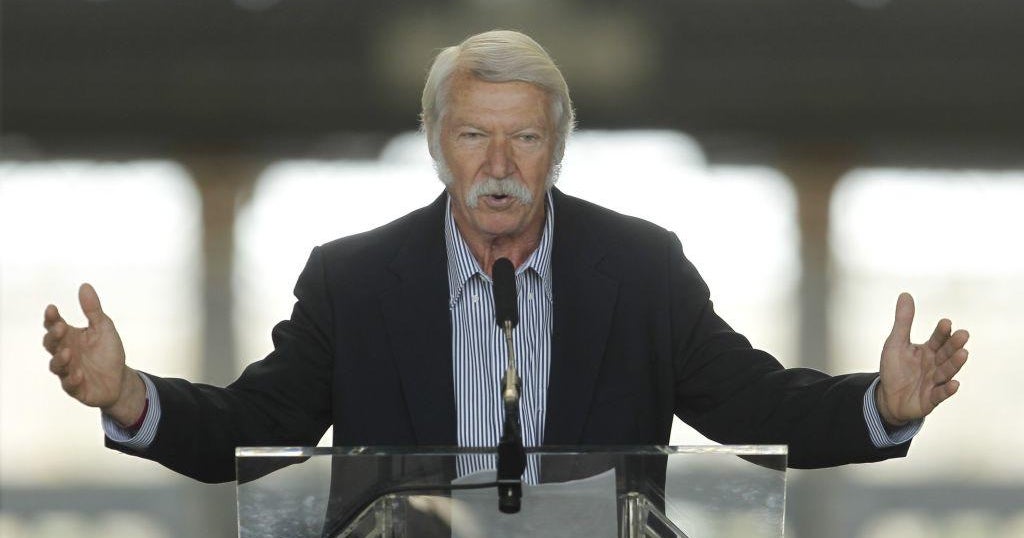
Bela Karolyi, the charismatic if polarizing gymnastics coach who turned young women into champions and the United States into an international power, has died. He was 82.
A spokesperson for USA Gymnastics confirmed to CBS News by email that Karolyi died Friday. No cause of death was given.
Karolyi and wife Martha trained multiple Olympic gold medalists and world champions in the U.S. and Romania, including Nadia Comaneci and Mary Lou Retton.
Ron Jenkins/Fort Worth Star-Telegram/Tribune News Service via Getty Images
“A big impact and influence on my life,” Comaneci, who was just 14 when Karolyi coached her to gold for Romania at the 1976 Montreal Olympics, posted on Instagram.
The Karolyis defected to the United States in 1981 and over the next 30-plus years became a guiding force in American gymnastics, though not without controversy. Bela helped guide Retton — all of 16 — to the Olympic all-around title at the 1984 Games in Los Angeles and memorably helped an injured Kerri Strug off the floor at the 1996 Games in Atlanta after Strug’s vault secured the team gold for the Americans.
Karolyi briefly became the national team coordinator for USA Gymnastics women’s elite program in 1999 and incorporated a semi-centralized system that eventually turned the Americans into the sport’s gold standard. It did not come without a cost. He was pushed out after the 2000 Olympics after several athletes spoke out about his tactics.
It would not be the last time Karolyi was accused of grandstanding and pushing his athletes too far physically and mentally.
During the height of the Larry Nassar scandal in the late 2010s — when the disgraced former USA Gymnastics team doctor was effectively given a life sentence after pleading guilty to sexually assaulting gymnasts and other athletes with his hands under the guise of medical treatment — over a dozen former gymnasts came forward saying the Karolyis were part of a system that created an oppressive culture that allowed Nassar’s behavior to run unchecked for years.
Still, some of Karolyi’s most famous students were always among his staunchest defenders. When Strug got married, she and Karolyi took a photo recreating their famous scene from the 1996 Olympics, when he carried her onto the medals podium after she vaulted on a badly sprained ankle.
CBS News
Mike Tyson says he has “no regrets” after losing boxing match to Jake Paul

Despite losing his boxing match to Jake Paul, Mike Tyson in a social media post Saturday said he had “no regrets” to getting “in ring one last time.”
The boxing legend was defeated by social media star Jake Paul in a highly anticipated fight on Friday night with an age difference of over three decades between the two contenders.
Netflix said Saturday that 60 million households worldwide tuned in to watch the match. The two fighters went eight full rounds, with each round two minutes long. Paul defeated Tyson by unanimous decision and the 27-year-old upset boxer and 58-year-old former heavyweight champion hugged afterward.
Paul was expected to earn about $40 million from the fight, and Tyson was expected to take around $20 million for the fight, according to DraftKings and other online reports.
Getty Images
Tyson said on his social media that “this is one of those situations when you lost but still won. I’m grateful for last night.”
The fight almost didn’t happen after Tyson experienced an ulcer flare-up while on a plane in March. He addressed his illness Saturday, writing that he “almost died in June.” He said he had eight blood transfusions and “lost half my blood and 25lbs in hospital and had to fight to get healthy to fight so I won.”
Tyson retired from boxing in 2005 after a 20-year career. He last fought in a 2020 exhibition match against former four-division world champ Roy Jones Jr.
“To have my children see me stand toe to toe and finish 8 rounds with a talented fighter half my age in front of a packed Dallas Cowboy stadium is an experience that no man has the right to ask for. Thank you,” he said.
Alex Sundby and
contributed to this report.
CBS News
In their final meeting, Xi tells Biden he is “ready to work with a new administration”
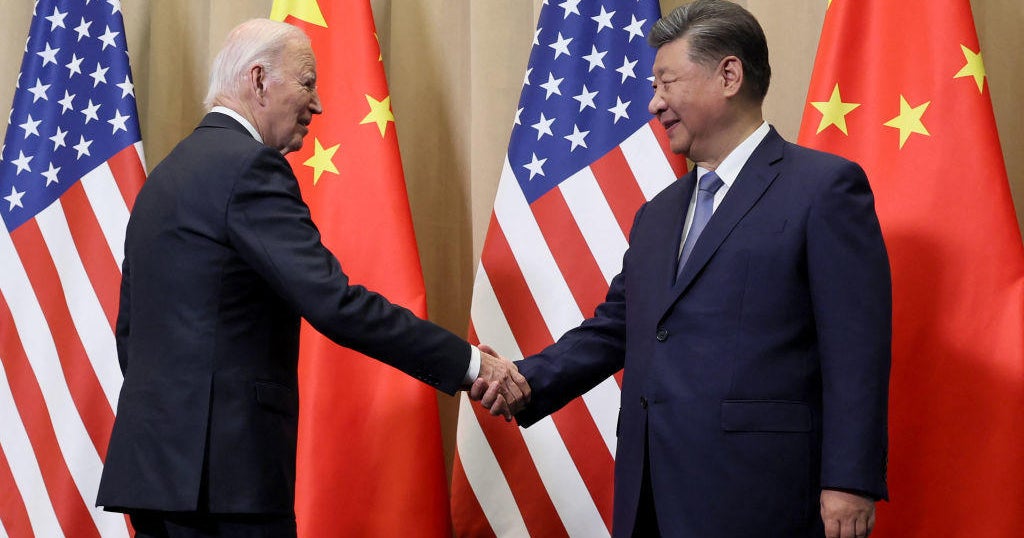
In their final meeting, China’s leader Xi Jinping told U.S. President Biden that his nation was “ready to work with a new administration,” as President-elect Donald Trump prepares to take over.
The two leaders gathered Saturday on the sidelines of the annual Asia-Pacific Economic Cooperation summit. Mr. Biden was expected to urge Xi to dissuade North Korea from further deepening its support for Russia’s war on Ukraine. It marked their first in-person meeting since they met in Northern California last November.
Without mentioning Trump’s name, Xi appeared to signal his concern that the incoming president’s protectionist rhetoric on the campaign trail could send the U.S.-China relationship into another valley.
“China is ready to work with a new U.S. administration to maintain communication, expand cooperation and manage differences so as to strive for a steady transition of the China-U.S. relationship for the benefit of the two peoples,” Xi said through an interpreter.
LEAH MILLIS/POOL/AFP via Getty Images
Mr. Biden, meanwhile, spoke in broader brushstrokes about where the relationship has gone and reflected not just on the past four years, but on their long relationship.
“Over the past four years, China-U.S. relations have experienced ups and downs, but with the two of us at the helm, we have also engaged in fruitful dialogues and cooperation, and generally achieved stability,” he said.
Mr. Biden and Xi, with top aides surrounding them, gathered around a long rectangle of tables in an expansive conference room at Lima’s Defines Hotel and Conference Center.
There’s much uncertainty about what lies ahead in the U.S.-China relationship under Trump, who campaigned promising to levy 60% tariffs on Chinese imports.
Bobby Djavaheri, president of Los Angeles-based Yedi Houseware Appliances — which manufactures its products in China — told CBS News in an interview this week that such tariffs “would decimate our business, but not only our business. It would decimate all small businesses that rely on importing.”
Trump has also proposed revoking China’s Most Favored Nation trade status, phasing out all imports of essential goods from China and banning China from buying U.S. farmland.
Already, many American companies, including Nike and eyewear retailer Warby Parker, have been diversifying their sourcing away from China. Shoe brand Steve Madden says it plans to cut imports from China by as much as 45% next year.
White House national security adviser Jake Sullivan said Biden administration officials will advise the Trump team that managing the intense competition with Beijing will likely be the most significant foreign policy challenge they will face.
It’s a big moment for Mr. Biden as he wraps up more than 50 years in politics. He saw his relationship with Xi as among the most consequential on the international stage and put much effort into cultivating that relationship.
Mr. Biden and Xi first got to know each other on travels across the U.S. and China when both were vice presidents, interactions that both have said left a lasting impression.
“For over a decade, you and I have spent many hours together, both here and in China and in between. And I think we’ve spent a long time dealing with these issues,” Mr. Biden said Saturday.
But the last four years have presented a steady stream of difficult moments.
The FBI this week offered new details of a federal investigation into Chinese government efforts to hack into U.S. telecommunications networks. The initial findings have revealed a “broad and significant” cyberespionage campaign aimed at stealing information from Americans who work in government and politics.
U.S. intelligence officials also have assessed China has surged sales to Russia of machine tools, microelectronics and other technology that Moscow is using to produce missiles, tanks, aircraft and other weaponry for use in its war against Ukraine.
And tensions flared last year after Mr. Biden ordered the shooting down of a Chinese spy balloon that traversed the United States.


